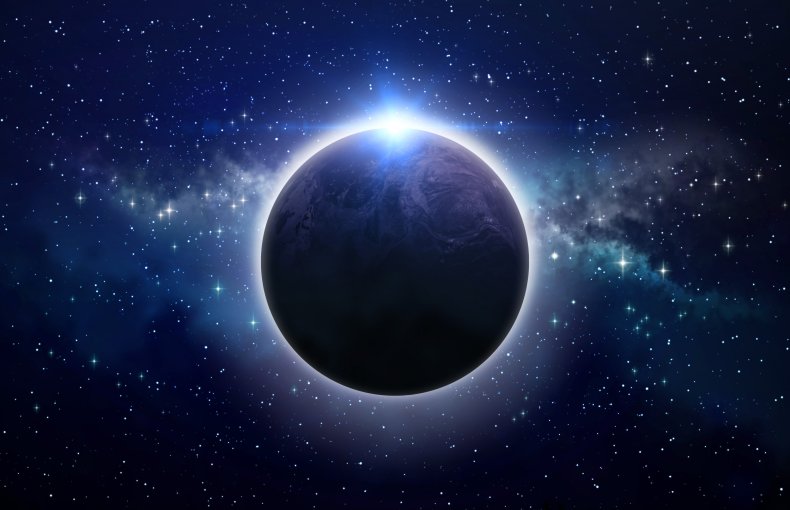Scientists have accidentally discovered details about a "very exciting" planet orbiting a nearby star system, which is thought to contain more water than Earth.
The scientific interest in the planet, known as Nu2 Lupi d, was sparked after researchers spotted it using the European Space Agency's Cheops satellite.
It orbits a sun-like star around 50 light years away from us that is visible with the naked eye, has a mild atmospheric temperature and appears to contain a large amount of water.
Researchers already knew that the planet was there because previous studies of the star, called Nu2 Lupi, showed that it had three planets orbiting it called b, c, and d.
They were initially discovered by the European Southern Observatory in Chile in 2019 and follow-up observations confirmed that Nu2 Lupi is one of only three naked-eye stars that have more than one planet orbiting them.
Such stars are of "great importance" because researchers can use them to understand how planets form in the first place, Laetitia Delrez, a researcher at the University of Liege in Belgium who was part of the team involved in the recent observations of Nu2 Lupi d, said in a statement.
Delrez and the team had initially set out to observe only planets b and c around Nu2 Lupi, but were amazed when they accidentally detected the transit of planet d as well, according to a press release.
Planets can be detected orbiting other stars because of a process known as transit photometry, in which scientists peer at a star to detect any dips in brightness. These dips suggest a planet has come between the telescope and the star as the planet orbits around it.
Using Cheops, researchers determined that planet d has a radius 2.5 times bigger than Earth's and goes around its star once every 107 days or so. It also has a mass around 8.8 times that of Earth's, and in our solar system would orbit somewhere between Mercury and Venus.
Planet d also seems to have more water than Earth does. But scientists think it will be in the form of either high-pressure ice or hot water vapor.
Neither planet d nor planets c or b would be habitable, according to Enric Pallé, a co-author of the research and a researcher at the Instituto de Astrofísica de Canarias (IAC) astrophysics center in Spain.
However, he said in an IAC press release that "their diversity makes the system very exciting and a great future perspective to show how these bodies formed and how they have changed with time."
Mahmoudreza Oshagh, another co-author and IAC researcher, said: "Combined with its bright parent star, its long orbital period and its ideal situation for follow-up, this means that planet d is very exciting: it is an exceptional object, with no known equivalent, and it will certainly be a fundamental object for future studies."
Meanwhile, planet b is thought to be mainly rocky while planet c is also thought to be watery.
The research, titled "Transit detection of the long-period volatile-rich super-Earth Nu2 Lupi d with CHEOPS" was published in the journal Nature Astronomy on June 28.
It states the Nu2 Lupi system is a good place for researchers to test planet evolution models because of the diversity of its orbiting planets.

"exciting" - Google News
July 28, 2021 at 09:53PM
https://ift.tt/2UVMQuk
Scientists Accidentally Find a 'Very Exciting' Unique Exoplanet Has More Water Than Earth - Newsweek
"exciting" - Google News
https://ift.tt/2GLT7hy
Shoes Man Tutorial
Pos News Update
Meme Update
Korean Entertainment News
Japan News Update
Bagikan Berita Ini














0 Response to "Scientists Accidentally Find a 'Very Exciting' Unique Exoplanet Has More Water Than Earth - Newsweek"
Post a Comment